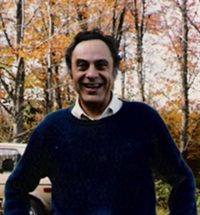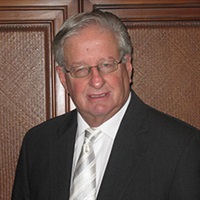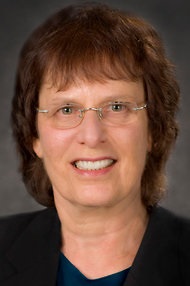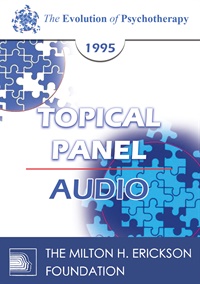EP95 Panel 08 - Psychotherapy Research - Eugene Gendlin, PhD; Lynn Hoffman, ACSW; Donald Meichenbaum, PhD; Francine Shapiro, PhD
- Average Rating:
- Not yet rated
- Topic Areas:
- Topical Panels | Psychotherapy | Research
- Categories:
- Evolution of Psychotherapy | Evolution of Psychotherapy 1995
- Faculty:
- Eugene Gendlin, PhD | Lynn Hoffman, ACSW | Donald Meichenbaum, PhD | Francine Shapiro, PhD
- Duration:
- 57 Minutes
- Format:
- Audio Only
- Original Program Date:
- Dec 15, 1995
- License:
- Never Expires.
Description
Description:
Educational Objectives:
- To compare and contrast clinical and philosophical perspectives of experts.
*Sessions may be edited for content and to preserve confidentiality*
Credits
Faculty

Eugene Gendlin, PhD Related Seminars and Products
Eugene T. Gendlin, PhD, is an American philosopher and psychotherapist who developed ways of thinking about and working with living process, the bodily felt sense and the 'philosophy of the implicit'. Gendlin received his Ph.D. in philosophy in 1958 from the University of Chicago where he became an Associate Professor in the departments of Philosophy and Psychology.
His philosophical work is concerned especially with the relationship between logic and experiential explication. Implicit intricacy cannot be represented, but functions in certain ways in relation to philosophical discourse. The applications of this "Philosophy of the Implicit" have been important in many fields.
His philosophical books and articles are listed and some of them are available from this web site. They include Experiencing and the Creation of Meaning, (in paperback) and Language Beyond Post-Modernism: Saying and Thinking In Gendlin's Philosophy (edited by David Levin) , both from Northwestern University Press, l997 and A Process Model.

Lynn Hoffman, ACSW Related Seminars and Products
Lynn Hoffman, A.C.S.W., is an internationally renowned theorist and lecturer on family therapy who has written many books and articles including Techniques of Family Therapy, Foundations of Family Therapy, Milan Systemic Family Therapy and Exchanging Voices. She is currently Consultant to the Center for Collaborative Studies at North Central Human Services in Gardner, Mass., and serves on the faculty of the doctoral program at Smith School of Social Work. She is an emeritus faculty member of the Ackerman Institute for Family Therapy in New York. In 1988, Hoffman was awarded the Life Achievement Award for Distinguished Contribution to the Field of Family Therapy by the American Association for Marriage and Family Therapy. She is an advisory editor of Family Process. She received her M.S.W. in 1971 from the Adelphi School of Social Work.

Donald Meichenbaum, PhD Related Seminars and Products
Donald Meichenbaum, Ph.D in Clinical Psychology is currently Research Director of Melissa Institute for Violence Prevention, Miami (melissainstitute.org). He is one of the founders of cognitive behavior therapy. He was voted one of the most influential psychotherapists of the 20th century. Latest books include "Roadmap to Resilience" (www.roadmaptoresilience.com) and "Evolution of Cognitive Behavior Therapy: A Personal and Professional Journey."

Francine Shapiro, PhD Related Seminars and Products
Francine Shapiro, Ph.D., is the originator and developer of EMDR, which has been so well researched that it is now recommended as an effective treatment for trauma in the Practice Guidelines of the American Psychiatric Association, and those of the Departments of Defense and Veterans Affairs. Dr. Shapiro is a Senior Research Fellow Emeritus at the Mental Research Institute in Palo Alto, California, Executive Director of the EMDR Institute in Watsonville, CA, and founder and President Emeritus of the Trauma Recovery EMDR Humanitarian Assistance Programs, a non-profit organization that coordinates disaster response and low fee trainings worldwide.


